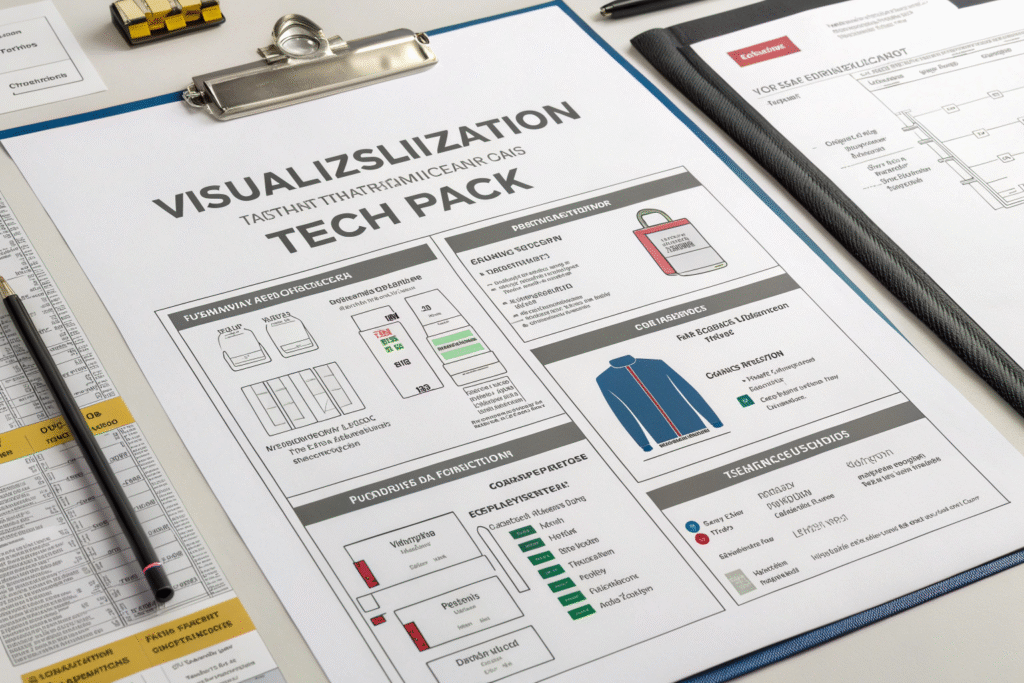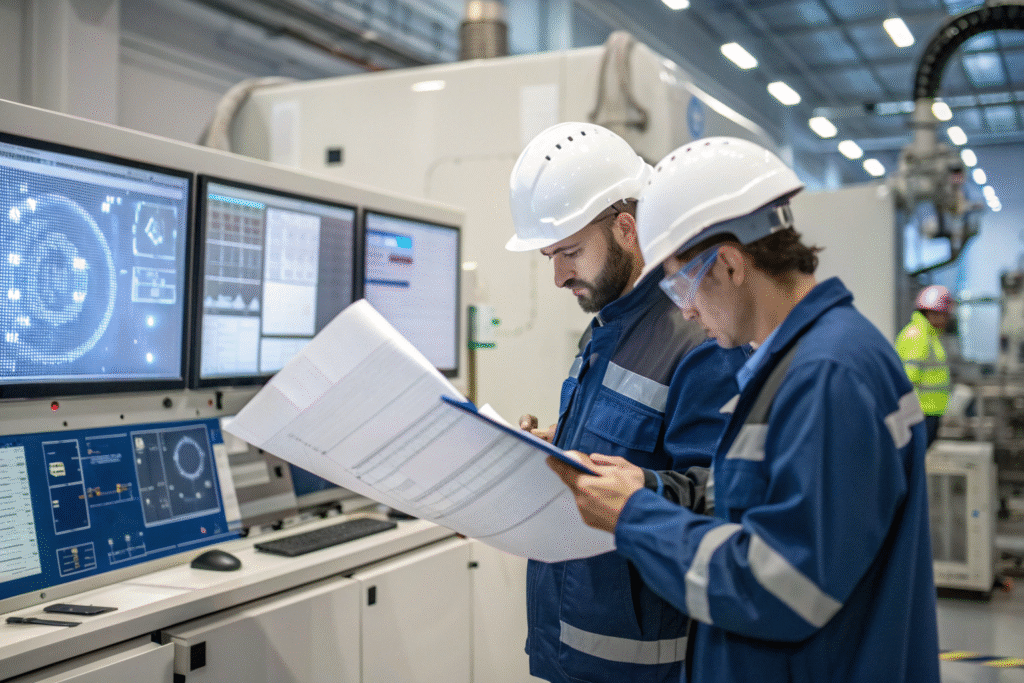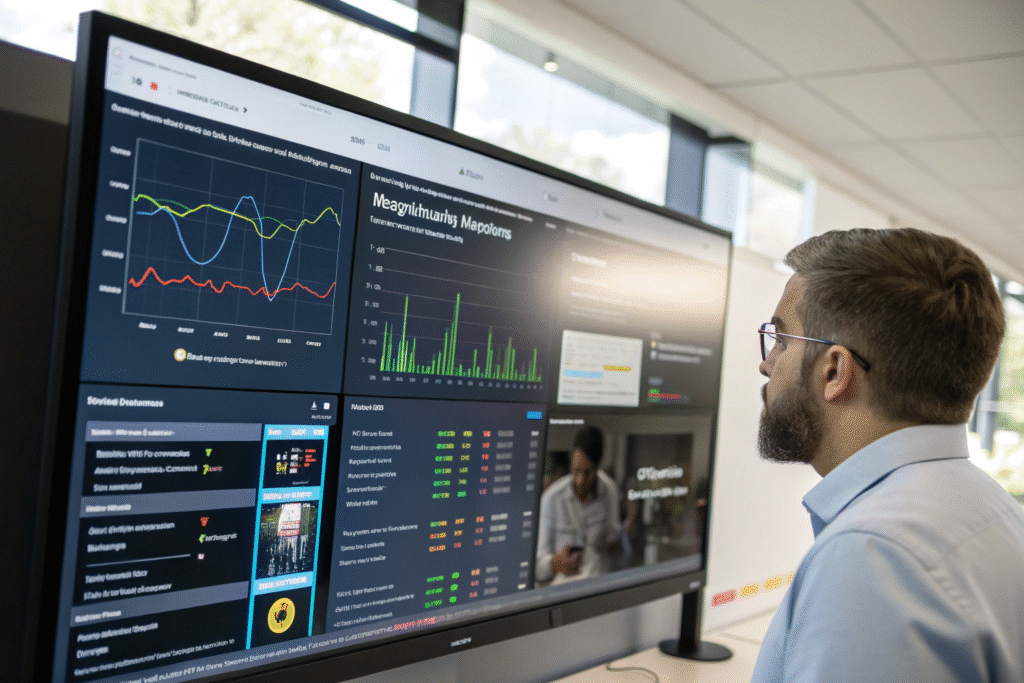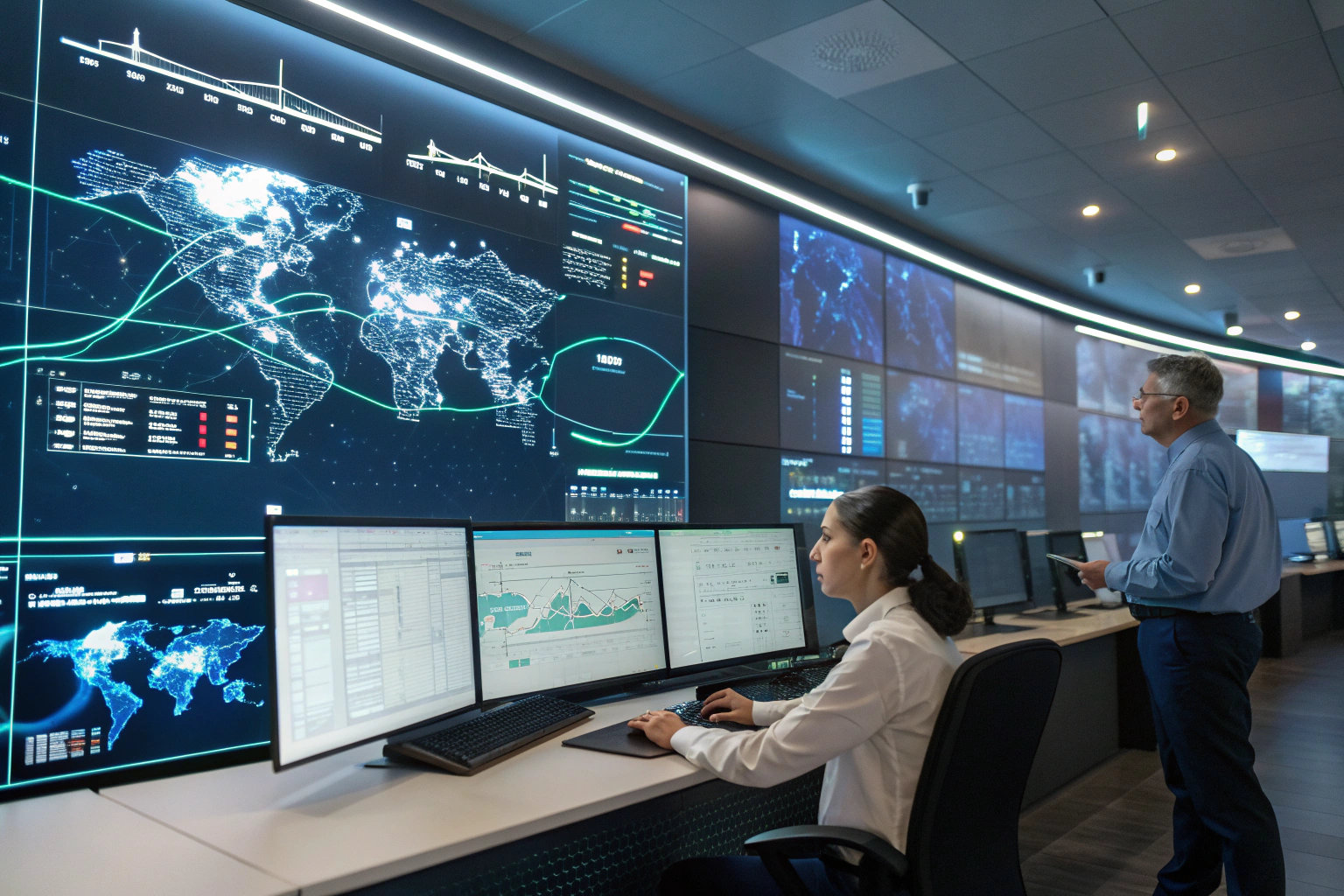The integration of Artificial Intelligence into global logistics is transforming how businesses manage their supply chains from China. Many importers still rely on traditional methods that involve manual processes, limited visibility, and reactive problem-solving. AI technologies promise to address these challenges by bringing unprecedented efficiency, predictability, and automation to international shipping.
AI will revolutionize your China shipping through predictive analytics for route optimization, automated documentation processing, intelligent risk management, and dynamic pricing. These technologies will reduce costs by 15-30%, cut transit times by 20%, and decrease customs delays by 40% through proactive problem-solving and automation.
Let's explore the specific AI applications that are reshaping China-US logistics and how they'll directly benefit your import operations.
How will AI optimize shipping routes and modes?
Route optimization represents one of AI's most immediate impacts on China shipping. Traditional routing relies on historical patterns and human experience, while AI analyzes countless variables in real-time to identify the most efficient paths.
AI systems process weather data, port congestion patterns, carrier schedules, fuel costs, and geopolitical factors to recommend optimal routes and transportation modes. These systems continuously learn from outcomes, improving their recommendations over time. For your shipments from China, this means AI might suggest switching from West Coast to East Coast ports based on predicted congestion, or recommend sea-air combinations that balance cost and speed more effectively than human planners could calculate.

What data does AI consider for route optimization?
Advanced AI systems analyze:
- Real-time weather patterns across Pacific shipping lanes
- Port congestion forecasts using historical and current data
- Carrier performance analytics predicting schedule reliability
- Fuel price projections affecting transportation costs
- Political and regulatory developments impacting trade routes
- Seasonal demand patterns influencing capacity and pricing
This comprehensive analysis identifies opportunities human planners might miss.
How does machine learning improve over time?
AI systems continuously enhance their recommendations by:
- Tracking actual versus predicted outcomes for every shipment
- Incorporating new data sources as they become available
- Identifying emerging patterns before they become obvious
- Adapting to changing market conditions automatically
- Learning from corrective actions taken by human operators
This learning capability means the AI becomes more valuable with each shipment processed.
How will AI transform documentation and customs processes?
Documentation handling and customs clearance represent the most tedious and error-prone aspects of China shipping. AI automation promises to revolutionize these processes through intelligent document processing and predictive compliance.
AI-powered systems can extract information from commercial invoices, packing lists, and certificates automatically, populate customs forms, verify HS code classifications against product descriptions, and identify potential compliance issues before submission. For your China shipments, this means reduced manual data entry, fewer errors, faster customs clearance, and minimized risk of penalties. The technology can also learn from customs rulings and decisions to improve classification accuracy over time.

What specific documentation tasks will AI automate?
AI will transform these tedious processes:
- Data extraction from supplier documents and invoices
- Form population for customs declarations and certificates
- HS code classification using product descriptions and images
- Document consistency checking across multiple forms
- Regulatory requirement verification for specific products
- Submission tracking and exception alerting
This automation frees your team from administrative tasks to focus on strategic work.
How will AI improve customs clearance predictability?
AI enhances customs processes through:
- Predictive analysis of examination likelihood based on product type
- Optimal filing timing based on customs workload patterns
- Automated response generation for customs information requests
- Continuous compliance monitoring as regulations change
- Risk assessment for forced labor and other compliance areas
These capabilities transform customs from a reactive process to a predictable, managed function.
How will AI enhance supply chain visibility and risk management?
Traditional supply chain visibility provides limited snapshots of shipment status, while AI-driven systems offer predictive visibility and proactive risk management. This transformation moves supply chain management from reactive problem-solving to proactive opportunity optimization.
AI systems analyze data from IoT sensors, carrier updates, weather feeds, and port operations to provide real-time visibility and predict potential disruptions before they occur. For your China shipments, this means receiving alerts about potential delays weeks in advance, allowing for contingency planning. The technology can automatically trigger alternative arrangements when disruptions are predicted, minimizing impact on your operations.

What risks can AI predict and mitigate?
AI systems excel at forecasting:
- Weather-related disruptions affecting shipping lanes and ports
- Labor disruption likelihood at ports and transportation hubs
- Geopolitical impacts on specific trade routes
- Carrier financial stability issues affecting service
- Capacity constraints during peak seasons
- Regulatory changes that might affect your products
Early warning of these issues enables effective contingency planning.
How does AI enhance exception management?
When issues occur, AI systems provide:
- Automated impact assessment across your supply chain
- Alternative routing recommendations in real-time
- Stakeholder communication with status updates
- Cost-benefit analysis of different resolution options
- Performance tracking of carrier response to issues
This intelligent exception management minimizes disruption costs and impacts.
How will AI optimize costs and carrier selection?
Cost management in China shipping traditionally involves manual rate comparison and negotiation. AI transforms this process through dynamic pricing analysis, predictive capacity planning, and intelligent carrier selection based on multiple performance factors.
AI systems analyze historical rate data, current market conditions, and carrier performance metrics to recommend optimal carrier choices for each shipment. The technology can predict rate fluctuations based on seasonality, capacity changes, and fuel price movements, allowing for strategic booking timing. For your business, this means consistently securing the best rates and service levels while reducing administrative effort in carrier management.

How does AI improve carrier selection?
AI enhances carrier management through:
- Performance prediction based on historical data across multiple dimensions
- Route-specific capability matching to carrier strengths
- Cost-service level optimization for each shipment's priorities
- Reliability scoring incorporating recent performance trends
- Capacity forecasting to secure space during tight markets
This data-driven approach outperforms traditional relationship-based carrier selection.
What cost savings can AI generate?
Typical AI-driven savings include:
- Freight rate optimization through strategic timing (8-15%)
- Mode and route optimization balancing cost and speed (10-20%)
- Accessorial charge reduction through process improvement (5-10%)
- Inventory carrying cost reduction through better timing (7-12%)
- Compliance cost avoidance through error reduction (5-15%)
These combined savings significantly impact total landed costs.
Conclusion
AI is poised to revolutionize China shipping by transforming traditionally manual, reactive processes into automated, predictive, and optimized operations. From intelligent route planning and automated documentation to predictive risk management and dynamic cost optimization, AI technologies will deliver significant efficiency gains, cost reductions, and reliability improvements. Businesses that embrace these AI capabilities early will gain competitive advantages through lower costs, faster transit times, and more reliable supply chains. The revolution is not coming—it's already here, and forward-thinking importers are leveraging AI to transform their China shipping operations today.









